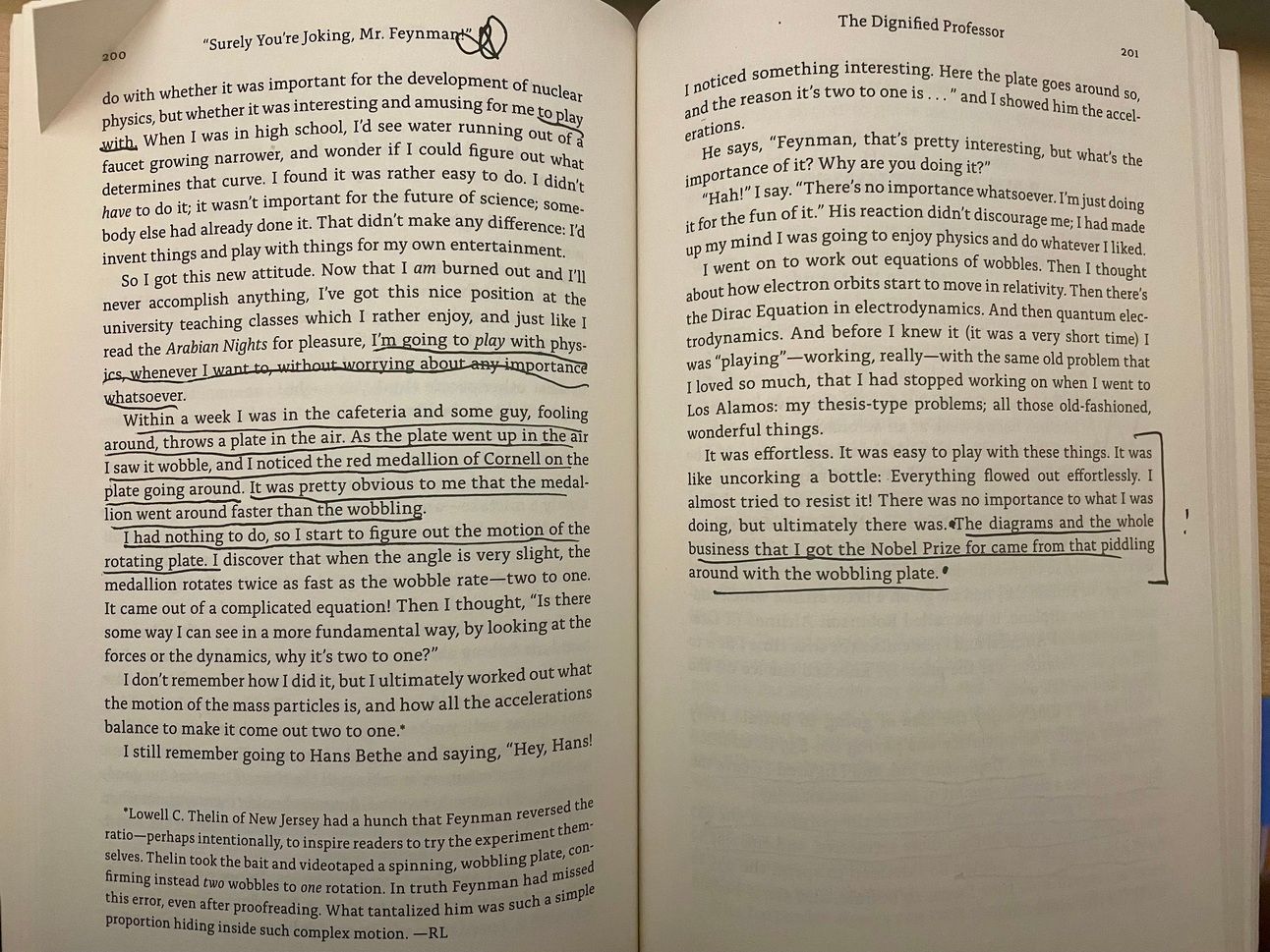After the atomic bombs fell on Japan in World War II, Richard Feynman had a hard time adjusting back to any semblance of “regular” life. Even professorial life was hard.
What was the point of work, let alone research?
Once you contribute to building something that can destroy, not just life itself, but all the great things you can do while you’re alive—think schools, and roads, and bongo stores, then stuff just doesn’t feel “worth it.”
It took Feynman a while to get his spark back.
The infinite passion to learn and explore all things science morphed into the finite outcome of bombs, death, and pointlessness.
But he started to get his mojo back after accepting a professor-job at Cornell.
He thought about what he used to like to do. It wasn’t stuff he had to do. It wasn’t stuff based on advancing any particular idea or theory either. He’d just notice stuff and then set about to figure it out.
What’s up with the way the stream of water narrows when it comes out of the faucet? Somebody already figured it out, but could he figure it out himself? It was a puzzle.
It was play.
Most of us are working on things others have figured out. We can approach it with a factory mindset and crank out or work to spec. There’s a time and place for that too. But we can also play with the figuring it out for ourselves angle.
Funny things happen when you start figuring stuff out for yourself too.
After Feynman made his peace with worrying about the importance of any research and going back to playing with physics, he started seeing ideas.
He was sitting in the Cornell cafeteria watching a guy fooling around throwing a plate up in the air. The plate had the Cornell logo on it, and Feynman thought it there was something funny about the speed of the logo relative to the edge of the plate, especially when there was a slight wobble.
Your version of play at work might not produce what Feynman’s produced, but they can be a source of inspiration that carries farther than you’ll initially think.
When you’re solving for your curiosity, when you’re fully engaged in the puzzle, you’ve created room for magic. The magic is the source of the connections you and only you might draw from something else. Yes, even something else someone else has already totally figured out.
Feynman’s work on the plates turned into a series of diagrams and equations describing the math of wobbles, particularly in how they relate to electron orbits and relativity. Within time, this was the work that earned him a Nobel Prize.
All that from watching a guy spin plates in a cafeteria.
What are you noticing these days?
h/t Surely, You’re Joking, Mr. Feynman!


